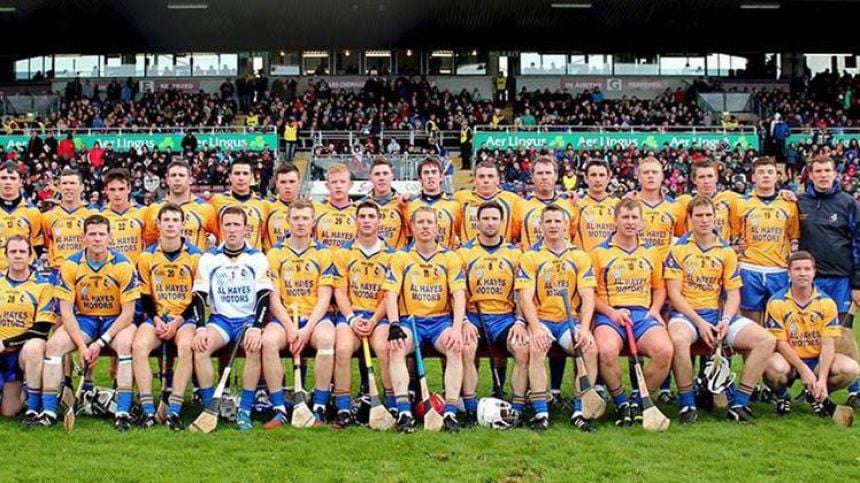Ten East Galway clubs have issued a statement voicing their opposition to the proposed revamp of the Galway hurling championships.
At a meeting last Monday night (24th January), they expressed their fear that moves to limit the senior and intermediate hurling championships to 16 teams from 2023 would have a determential effect on rural clubs in the area.
Motion 13 at GAA Congress last year has instructed all counties to bring their competing teams in the top two tiers down to a maximum of 16.
Galway hurling currently has 24 teams and are looking for a way to relegate eight.
==
(Statement from East Galway Clubs)
==
MAJOR OPPOSITION IN GALWAY TO REVAMP OF HURLING CHAMPIONSHIPS
Rural Clubs in East Galway Unite In Quest To Oppose Relegation of Eight Teams From Senior and Intermediate
'No way'. That was the emphatic conclusion at a meeting attended by East Galway Clubs on Monday January 24th. The topic under discussion was the decision by Croke Park to force the Galway Hurling Board to limit the Senior and Intermediate hurling championship to 16 teams in 2023. The message is simple - let Galway look after our own affairs.
The controversy stems from Motion 13 at GAA Congress last year, which has now become rule. As it stands, eight clubs from senior and intermediate face the prospect of being relegated from their respective competitions in 2022. At best, they will get a stay of execution until 2023 under the current regime.
Speaking at the event, Meelick/Eyrecourt club stalwart Damien Howe outlined his frustration at the revamp of the championships. 'East Galway clubs must unite and stand together on this. They are already being impacted by dwindling numbers and this Croke Park rule will now have dire consequences for the region. In most instances with rural clubs the GAA pitch is the only outlet for connecting communities and if our future players are relegated to lower grade competition then we will see a landslide in standards, with little prospect of keeping our greatest asset, our ‘Players’.
Shane Curley, a referee and Hurling Board Delegate for the Kilnadeema-Leitrim club, echoed the sentiments of Howe. 'We want to give our young people a reason to come home to East Galway. Can anybody say with confidence that our young players will come home from college at weekends to play for mid-table Intermediate clubs with no prospect of promotion? What incentive is there for a player to come home if the roar of a crowd in the heat of championship battle is a distant memory of by-gone days? The GAA was founded with the intention of our clubs being the focal point of rural communities. It wasn't founded with streamlining of fixtures or efficiency of competition completion at its core. It has to be seen as more than that. This decision stands to do major damage to peripheral areas of our county'.
This is a view that Ivan Canning agrees with. The Portumna Chairperson and goalkeeper, sees it as an insurmountable hill for small rural clubs to climb. ‘Clubs are fighting the fight for rural communities by providing facilities which are at the heart of their parishes. The East of the County would be a forgotten wasteland but for the perseverance of the local people. We have to fight this'.
Mullagh senior hurling manager Conor Dervan sees no merit in this decision. 'There is a very dangerous assumption within this decision that young lads will naturally want to play hurling. There is a blindness to the many other attractions in modern life for young lads all over Ireland. Hurling is a great game, but there are alternatives out there now. Is there any guarantee that a small rural club will continue to attract young players with the move towards this style of championship?' What incentives will our future hurlers have if there is no prospect of playing for their club at the top level?
There was a fear expressed by many at the meeting that 'super clubs' will develop with far too much power for rural clubs to ever be able to compete with. These clubs, with memberships creeping into the thousands, are feared to be on the brink of mirroring those in Dublin with colossal yields each year from funding in membership. These clubs will be able to offer irresistible facilities and opportunities to hurl at the top level to the young player, in comparison to rural clubs with small playing numbers and no expectation of hurling at the top level. Therein lies the danger for these rural clubs who have invested so much in their community facilities down through the years, instilling in their young hurlers that the dream was there to play at the top level for their club and county. Is this dream to be thing of the past.
It remains to be seen what will unfold in the coming months in relation to this. The appetite is there to reverse this decision, to prevent the further demise of rural clubs.
Signed by:
Ahascragh Fohenagh GAA Club
Cappataggle GAA Club
Kilnadeema-Leitrim GAA Club
Killimor GAA Club
Kiltormer GAA Club
Meelick-Eyrecourt GAA Club
Mullagh GAA Club
Portumna GAA Club
Tommy Larkins GAA Club
Tynagh Abbey Duniry GAA Club







